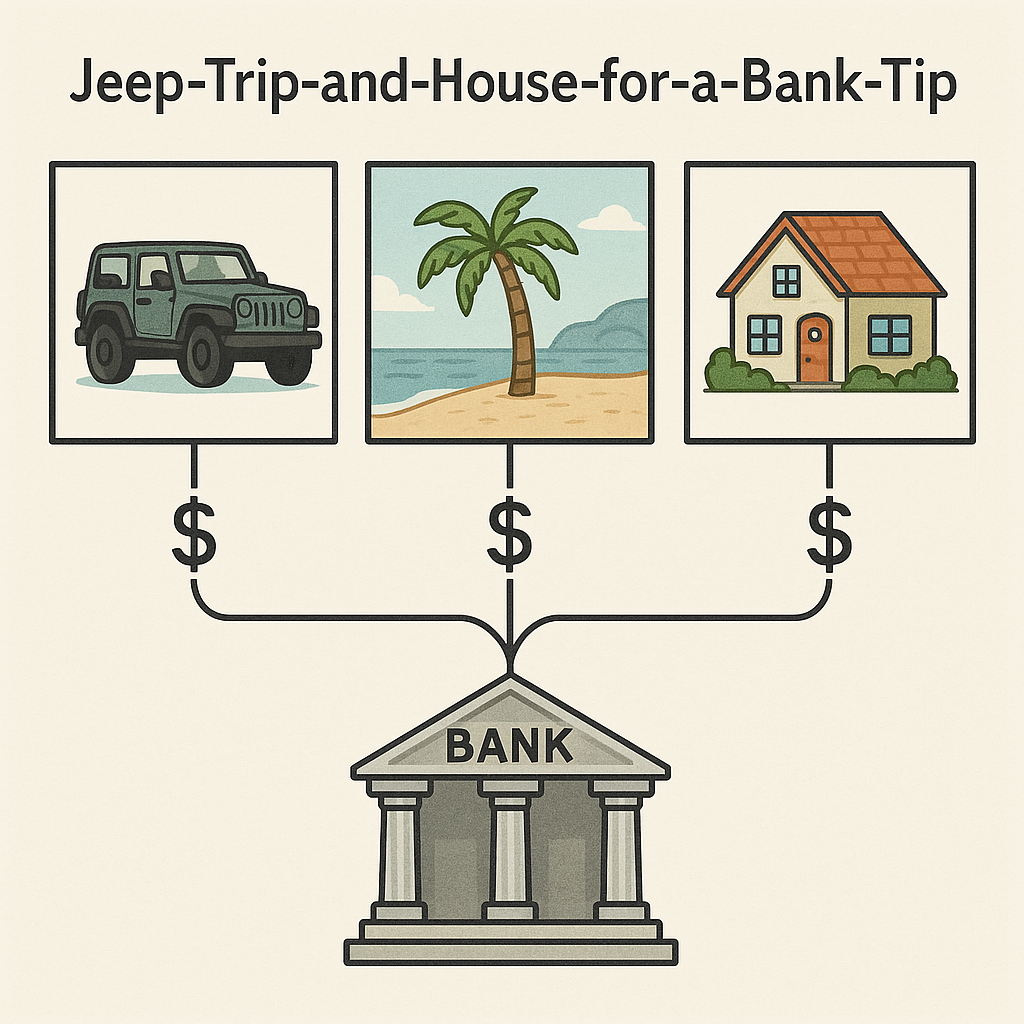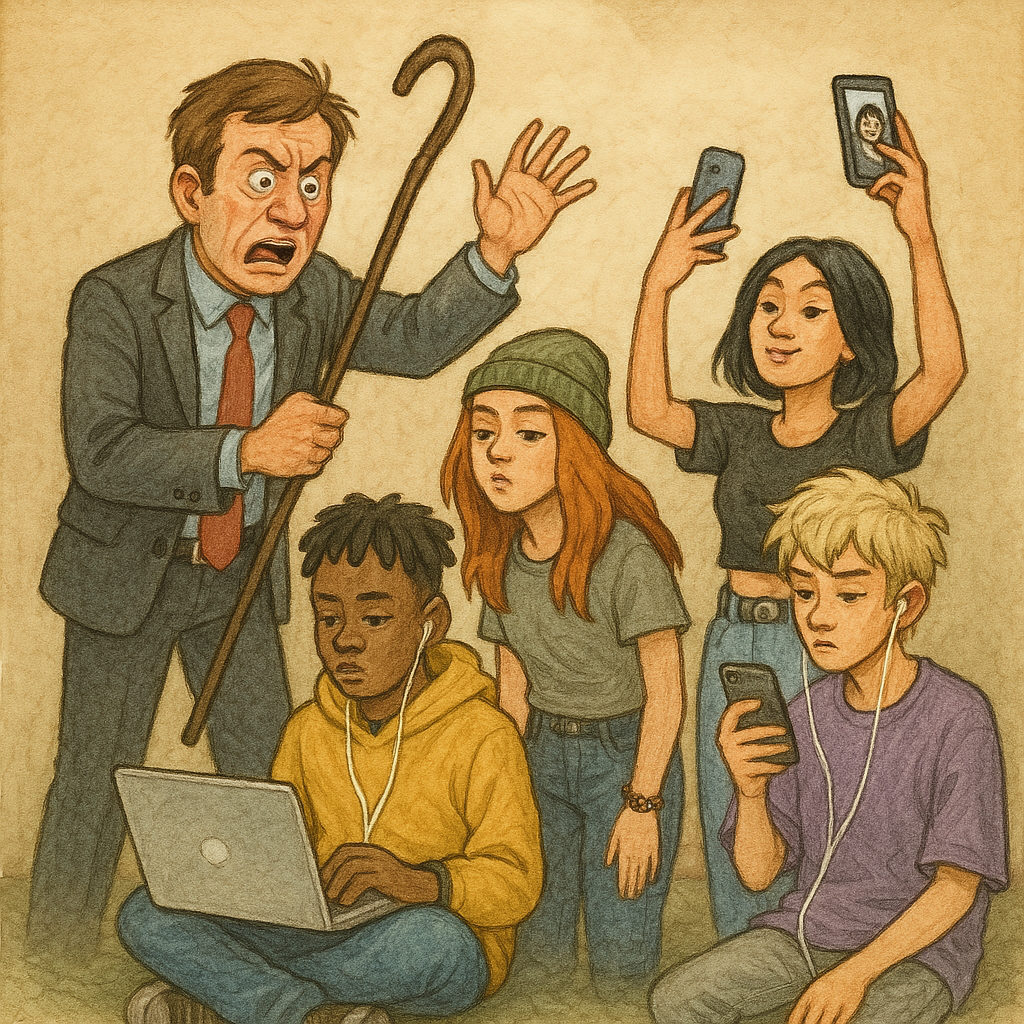Did you ever hear a barely audible moan at your work place and wonder where it comes from? This is the sound of Gen-Z’ managers. This is a hyperbolic take for humor – Gen-Z brings fresh energy, innovation, and much-needed change to workplaces! But yeah, it’s an adjustment.

Managing Gen-Z can feel like herding cats – if the cats had TikTok/Twitter attention spans, zero patience for corporate BS, and an allergy to outdated processes. They demand flexibility but expect promotions yesterday, thrive on collaboration but ghost meetings for DMs, and want “purpose” in every task while rolling their eyes at anything resembling hierarchy. They’ll fact-check your words with a Google search mid-conversation, call out inefficiencies loudly (often on Slack for everyone to see), and prioritize “mental health days” over last-minute crunch time – forcing you to actually, you know, plan ahead. Their digital-native confidence is impressive until you realize they’ve never addressed a client without an emoji.
Adapt or perish, boomer!
The idea that Gen-Z are “unmotivated” and “lazy” is rooted in a stereotype supported mostly by the companies with a rigid organizational culture. They are not poorly motivated, but rather they are motivated differently. The problem with Gen-Z is not the lack of motivation, but rather weak mythology and unappealing meanings shared, for instance, within an organization. This short article aims not at solving the problem once and for all, but rather at exploring the alternatives, rather at taking a look over the generational fence. In doing so, it makes sense to briefly consider what Gen-Z is, what motivates them at work, what meanings they get exposed to, and honestly looking back in the mirror to what companies offer.
What are Gen-Z?
Gen-Z, born between the mid-to-late 1990s and early 2010s, is the first generation of truly digital natives, shaped by smartphones, social media and instant connectivity. This is a significant distinction as their online presence influences their behavioral patterns and decision-making, and stay at source of the viral trends, memes, and streaming wars. On one side, they are socially conscious, advocating for noble causes (equality, climate, mental health); on the other, their online presence is a facade which must stay cool. While often stereotyped for having a short attention span fostered by social media, they prioritize authenticity and short-form clear messages. This is another reason why they excel at filtering information (create a controlled online avatar) when compared with representatives of the older generations. This is important especially from the point of view of their job attractiveness. Economic instability has led them to develop the financial pragmatism, which is directly expressed in their motivation.
What Gen-Z want at work?
As you will find in the scientific literature or online searches, the main drives for Gen-Z affecting what they want at work are a purpose and ability to have an impact. Surely, these are not the only factors. Other factors are (clickable to the reference source): flexibility and remote work, growth and development, transparency and fair p(l)ay, tech–efficiency and use of digital tools rather than some outdated practices, work-life balance and mental health. Although, the purpose and impact are equally important for the other generations, Gen-Z would rather not work than as their parents take a job for pay only. In the age without social digital pressure and control, the “dominating groups of a society” have been successful in projecting the notions about “the way the world spins around” and both Gen-X (1965-1980) and Gen-Y (1981-1996) accepted/agreed to submit to “the bitter pill of adulthood.” In the age of constant connectivity, a Gen-Z is just a few clicks away from for example some bloggers that create videos of alternative ways of arranging a life, fooling around on expensive cars, having fun and still making the “decent living”. Availability of alternatives just support the choice and choice they make.
The essence of the problem – the meanings
The mythology shaping the common economic model accepted by the Gen-X and Gen-Y as a middle-class-dream-life-style expressed in the formula “Jeep-Trip-and-House-for-a-Bank-Tip” is not that exciting to Gen-Z kids. A careful thinker can notice that the line does not include a work place, which means that there is a segregation between the work life and just life. The system expects of you work and what you expect of the system is just secondary for what it is. Therefore, it is safe to say that it is not only unattractive but also meaningless to the Gen-Z.

Work takes a big part of one’s life as Gen-Z could witness in their families. Every day we spend about 8 hours at work and with work travel it is often 10 hours, some food, some sleep and possibly some time to rest. What is left of a day? Gen-Z see their parents and they are not impressed: exhausted, tired, bitter, unhealthy and uninspired with their rat race. Their parents are stressed, drunk, are drugged, divorced, sick and in debt. This is not so exciting image of the future one is eager to pursue and this image is so easy to trace back to the work life. That is how it becomes just natural to want a purpose and impact at work. Surely and as mentioned, the purpose and ability to make an impact is not the only aspect that “zoomers” want from a job, but it is a single dominating factor determining the motivation to which they default back even when the other motivators are met.
The problem is not in Gen-Z or Gen-Y, Gen-X or anything in between. The biggest problem of the commonly shared narrative on TV, in social media, academia and public discourse is that the existing meanings are meaningless. They are not meaningless within a certain organization only. Those meanings are meaningless within the whole canvas of historical, socio-economic, political, scientific, and religious dimensions we use as a narrative these days. In other words, the underlying mythology at use these days is unengaging, bears weak explanatory power and requires only the animal level intelligence. If such mythology was acceptable in the time of “paper libraries” and “brick universities”, the arrival of internet and rapid flow of informational exchange only cracks harder on the integrity of the system.
Motivating Gen-Z at work
If we scale back, down to the level of a firm, let’s briefly evaluate what is in the work for Gen-Z.
- What companies expect?
- 20 years of education (yes, kindergarten and school are also educational institutions),
- practical training in the applied field,
- work experience,
- knowledge of the set of tools,
- good social skills,
- emotional intelligence,
- self-motivation,
- strong ethics and the list can go on.
- What companies offer in return? Open the most job announcements on LinkedIn to witness the glory of despair:
- a soft chair and a table in a 2×2 cubicle or a place by an industrial machine,
- good team/atmosphere (i.e. air),
- extra-work perks (bicycle split pay, sport club tickets, Christmas/New Year party),
- promise to rapidly grow in ranks (associated with no work-personal life balance) and
- the pay usually the survival minimum to keep the employee interested in staying.
Which part of the company promises sound any attractive and even remotely exciting? Surely – the pay and this is what the “kids” are coming for at work. Why then blame them for a poor motivation? Extras can fix the problem or numb the pain to agree to submit oneself to the rat race for some time. That is why all the fancy work perks do not work or work until the law of marginal satisfaction kicks in and the excitement diminishes. Line managers cannot and business owners often do not want to raise the stakes (increase employee pay as this decreases the profit; give an exciting meaning besides “the purpose of organization is to make money for its stakeholders”). This brings me back to the argument I started with: Gen-Z are not poorly motivated, but rather they are motivated differently.
If you are a manager, how do you motivate your Gen-Z young employees?
If you are a Gen-Z, what motivates you? Making an impact is rather too abstract. What does it mean to you?
